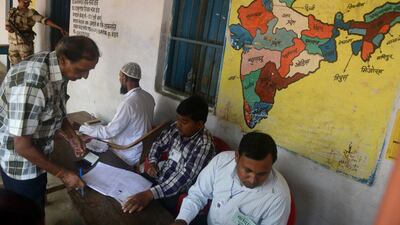The increasing prevalence of conflict, particularly in the Middle East, has prompted talk of a third World War. Indeed, after the horrific attacks in Paris, even the Pope has said it is under way. The use of the term, however, is fundamentally flawed, because it makes one of two assumptions, if not both.
First, that the world comprises only those parts of the globe involved in a conflict involving the West and its allies on one side and rogue states on the other. In that sense, that narrative is a continuation of the so-called clash of civilisations born out of the September 11 attacks.
Second, this perspective supposes the war will spread beyond the existing theatres of conflict. An obvious candidate is the Asia Pacific region, where an increasingly assertive China is becoming the focal point of the “pivot east” by the US away from the quagmires of Afghanistan and the Middle East. Either way, the third World War is presented as a conflict between opposing sets of values.
However, recent events across Asia have exposed the intrinsic contradictions of that narrative and highlighted its falsehoods. Elections held there this year are a good starting point, because they have powerfully demonstrated how humanity is united by its common aspiration for progress.
In Sri Lanka, a nation torn apart by civil conflict for the better part of two decades, voters twice rejected the candidature of Mahinda Rajapaksa partly because his politics were characterised by hatred for the country’s minority Tamil and Muslim communities. To their credit, Sri Lankans dumped a wartime leader in favour of a government professing inclusive progress.
Similarly, the elected representatives of Nepal have chosen a federal, secular system of governance over one characterised by Hindu nationalism. Voters in the Indian state of Bihar –and Delhi before them – have also voted against the hateful rhetoric of BJP. So, too, have the people of Myanmar, where the military-dominated government worked with Buddhist extremists as a means of retaining power.
These have served to demonstrate how many authoritarian governments have used the clash of civilisations narrative in an attempt to prolong their rule, and have been resoundingly rejected by voters who saw through the rhetoric because they had learnt, from experience, that the suffering it caused was shared by all, irrespective of ethnic identity or religious persuasion.
An even more poignant example is that of Afghanistan, a country that has been at war since the 1970s. It might seem an odd choice, because the war between the government and the Taliban is raging at its fiercest since the US-led invasion in 2001. Even there, however, the Taliban is making an effort to be seen as a prospective force for stability that, given the right circumstances, could become an important component of an inclusive Afghan state. Significantly, it is the Taliban, rather than the Afghan government, that is preventing ISIL from spreading its diseased mind-set. If only for the sake of their own longevity, even non-state actors are conforming, to some extent.
That glaring contradiction – of the Taliban being a potential force for good – reflects how tired humanity has become of conflict and the immeasurable damage it causes.
Obviously, that does not mean that political disputes will come to an end, but it does suggest the world at large has become acutely aware of the interdependence of countries with otherwise conflicting strategic objectives.
Recent events in East Asia have served to demonstrate interdependence is a powerful motivation. This year, the headlines there have been dominated by two events: the 70th anniversary of the end of the Second World War and territorial disputes in the Pacific, particularly in the South China Sea. The anniversary has exposed historical wounds, while China’s expansionism has inflicted new ones that will characterise rhetoric for many years to come.
However, as the leaders of China, Japan and South Korea said after their recent summit in Seoul, political tensions must not be allowed to overshadow their reliance on each other for economic growth and social progress. Just as noteworthy has been the reluctance among Asia Pacific nations not to become party to the growing strategic competition between China and the US, which has dominated the Western Pacific since 1945. They would rather benefit from both without being squashed between the two behemoths.
That is instructive of the trends of thought in a world flattened both by communications technology and the shift of economic growth away from the developed economies of the G7. While that grouping remains politically and militarily the most powerful, it is no longer economically dominant. The red carpet rolled out by Britain, in rapid succession, for Chinese president Xi Jinping and Indian prime minister Narendra Modi demonstrates just how dependent the developed economies have become on developing ones.
Thus it boils down to a shared desire for peace and prosperity. Competition, often stiff and tersely-worded, is inevitable, of course. But the emergent third World War is not between conflicting values, but between the globally shared aspiration for an improved quality of life and those who would deny it.
Tom Hussain is Asia Pacific editor of The World Weekly
Twitter: @tomthehack

